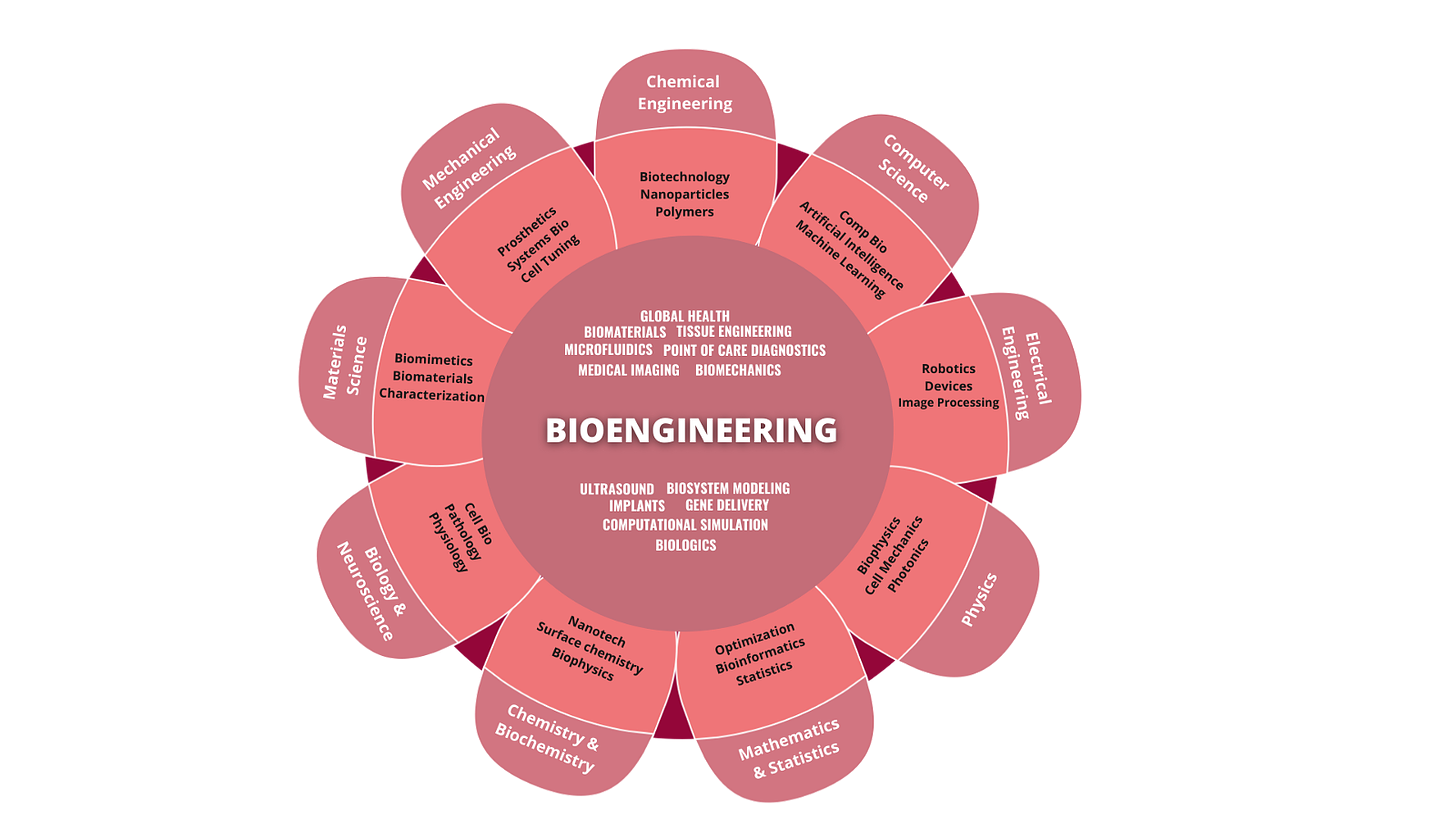BIOS: Nucleus of Life Science Innovation 🚀
JOBS
BIOS Talent: Find Jobs @ Breakout TechBio Startups — Search Jobs 🚀
Post Jobs: Add Your Startup to BIOS Talent — Post Now 🎉
Students: Join Alix Ventures Fellowship — Join Now 🧬
BIOS Contributor: Share Your Thought Leadership — Join Now🔬
CONTENT & COMMUNITY
BIOS Daily: Join 25K+ Subscribers Following TechBio — Sign Up 🔥
BIOS Insider: Premium TechBio Thought Leadership — Sign Up ✨
BIOS Commons: World’s Largest #TechBio Community — Join Now 🎉
INVEST
BIOS Angels: 1st TechBio Angel Investing Syndicate — Join Now 🌟
Alix Limited: Invest in Breakout TechBio Startups — Learn More 🧠
By:
Alix Ventures: Supporting Early Stage Life Science Startups Engineering Biology to Drive Radical Advances in Human Health
Calling All Innovators — Click to Reach Out 🚀
Overview
The birthplace of biotech startups is academia, where years of research are translated into powerful technologies. The sheer knowledge and high potential novel tech contained within university labs make them ideal for product-focused commercialization. However, despite the de-risking experiments labs undertake to prove basic merits of science, the majority of university labs are not aimed at creating spinouts — with institutional inertia, risk aversion, and uncertainty amongst others posing obstacles to translation. While many scientists are also entrepreneurs and vice versa, the worlds of academia and entrepreneurship could not be more polar opposite.
The ultimate goal for scientists is to make a positive impact — for patients, for other scientists, and for humanity. Thus, the question becomes: how can we get more labs to break out of the traditional research / publish cycle to focus on translating timely research into high potential startups?
Translation: Creating a Bridge to Patients
Translational research is defined as applying biological principles to medical needs, whether it be for management, prevention, or diagnostics. Much of academia is focused on translational research — understanding the biology, interactions, and principles before applying them to develop new treatments for specific indications. Yet the majority of discoveries do not make it past the lab. Where is the disconnect?
Academia is hardwired to discover and to understand. Labs are sustained by grant funding, which require solid hypotheses and are typically iterative upon previous research. Grant funding is systematic, and a common facet of academia is ground up discovery where problems are fit after technology is developed. On the other hand, the entrepreneurial lab is hardwired to translate. Entrepreneurs are focused on solving problems by implementing scientific discoveries for immediate impact. Instead of making incremental advances in knowledge, understanding and executing on product-market fit to solve problems is paramount in entrepreneurship. By bridging the gap between the academic and entrepreneurial mindset, we can unleash impactful innovation from and capital flow into scientific advancements.
A World Famous Entrepreneurial Lab
Entrepreneurial labs are not a new concept. Most universities have tech transfer offices dedicated to supporting commercialization, linking the academic world to VCs and beyond. University-focused accelerators and incubators are also becoming more widespread, helping introduce an entrepreneurial mindset to academia. There are several labs that are particular entrepreneurial standouts. One such lab is led by renowned synthetic biologist Professor George Church, whose scientific discoveries have influenced most DNA sequencing companies and have led to the direct founding of Dyno Therapeutics, 64-x, Manifold Bio, Rejuvenate Bio, amongst dozens of others. Part of Harvard’s Wyss Institute for Biologically Inspired Engineering, Church’s Lab is known for its genomics spinouts. In fact, the Church Lab saw 16 spinouts in 2018 (read more in Nature).
So what turned the Church lab into a node for entrepreneurial activity? One major reason is the push for founding scientists to take on the role of CEO. Few people have a better vision and passion for a product better than scientific investors. A common misconception is CEOs have to be seasoned industry experts with strong business acumen. While existing business knowledge is helpful, it is far easier for a technical founder to learn business skills than a business founder to learn the technical skills.
The Church Lab has created a culture where entrepreneurial efforts are celebrated. Researchers are encouraged to think outside the box, pursue their interests, and run with ideas. The Church Lab embraces risk, which facilitates a mindset conducive to translating high-impact work.
Creating an Entrepreneurial Lab
How does one create an entrepreneurial lab? Great scientists are not far removed from great entrepreneurs. Curiosity, creativity, logic, propensity for problem solving and passion for improving the world — the essential qualities that make a great scientist also make for a great entrepreneur.
Nevertheless, academic researchers rarely consider starting a company. The creation of more entrepreneurial labs will bridge the disconnect between academia and entrepreneurship, enhance innovation, and expedite the translation of discoveries that will serve to extend, save, and improve countless lives. So how does one create a great entrepreneurial lab?
1. Stepwise Function: Set a Long Term Vision & Realize Short Term Milestones
Perhaps the defining difference between a great lab and a great entrepreneurial lab is mindfulness towards pursuits with short term impact on the path to changing the world. Academic research is typically directed towards defining important, bite-sized components of big, long term questions (e.g., what is the role of a specific molecule in a biological pathway). The collective result of academic research is a growing body of literature that makes progress towards defining important and challenging subjects, without a need for immediate impact. In contrast, a great entrepreneurial lab produces translationally minded work that is focused on making an impact in the clinic and the market as quickly as possible. All this is not to say that entrepreneurial vision is anti-thetical to long-term, moon shot pursuits. Rather, in order to adopt a venture oriented mindset, researchers must ask how short term pursuits build a financially and scientifically sound path to realizing their long term vision.
2. Industry Mindset: Build to Solve Big Problems, Not Solve Small Solutions
Creating an entrepreneurial lab begins with promoting a lab culture of asking and answering questions with an immediate path towards helping people. It is easy to fall into the trap of developing technologies first and then fitting those solutions to existing problems. This can limit the technology’s impact and rarely works at addressing the entire problem. Impact is unlocked when there is strong product-market fit. More often than not, that starts with investigating industry needs and solving for high-impact problems from the get go. A problem-solving mindset drives commercialization towards patient impact with unprecedented speed and efficacy.
3. Create Culture: Break the Model & Form An Environment
Creating an entrepreneurial culture means creating a community of people dedicated to supporting each other in innovative problem solving and the failure it entails. This begins with supporting the lab in its pursuit of challenging the status quo, asking audacious questions, pursuing big visions of the future, and perhaps most importantly, being supportive through the inevitable failures that come from doing so. This support manifests in means that are traditional to academic labs — procuring research funding from grants; fostering academic collaborations; providing technical mentorship to researchers as they pursue their projects. However, it also entails establishing non-traditional channels of support — encouraging the pursuit of big questions driven by purpose and passion, rather than more manageable questions driven by comfort and safety; encouraging researchers when they inevitably face roadblocks and failure; and perhaps most importantly, creating a lab community that is integrated with the entrepreneurial community at large.
4. Tap Ecosystem: Seek Mentors & Specialized Knowledge
Entrepreneurship is not meant to be a solo journey. Learning from scientists who have walked before and helping those who come after is a cornerstone of this ecosystem. Researchers interested in entrepreneurial endeavors should start by getting involved with the larger entrepreneurial ecosystem. Most universities have tech transfer offices, venture organizations, and clubs that are great places to meet other like-minded people who can help start your journey.
A few suggestions on where to get started:
Community: BIOS PhD — Slack Community to connect with other top entrepreneurial PhD students
Online Sources: BIOS, Bay Bridge Bio, and Axial
Specialized Programs: Biotech entrepreneur learning and support groups, e.g., Founder Frequency by Pillar VC and Petri, Activate Bio at Harvard University, Activate (formerly Cyclotron Road), all of which are open to applicants from across the world.
Campus Resources: University based venture & entrepreneurship organizations. Check out Contrary Capital’s campus maps here
5. Cultivate Talent: Build a Foundation of Multi-Disciplinary Thinking
True innovation is born from communities of diverse backgrounds, perspectives, skill sets. Diverse communities comprise people who are brilliant in the lab, or excellent at reading and synthesizing the literature, or captivating in their writing or presentations; however, they also include folks who are passionate about building communities around science or visionary leaders who unite individuals towards a common goal. The uniting thread of great innovators is their passion for making the world a better place.
Entrepreneurship thrives on community. Surround yourself with founders who came before you, technical & business mentors, and other driven individuals. Mentors are invaluable at checking blindspots and lend a critical eye that can only come from an outside perspective. Find mentors who you respect, develop deep relationships entrenched in trust, and lean on each other to accelerate growth & expertise.
Creating an entrepreneurial lab begins with promoting a lab culture of leaning on people, embracing risk, and asking questions with an immediate path towards impact.
The Time is Now for Entrepreneurial Labs
COVID has cast biotech into the global spotlight. More than ever, the world is realizing how important issues such as drug discovery, CRISPR gene editing, microbe engineering, bio-manufacturing, etc. are in practice. Biotech innovation is accelerating faster than ever before, now is the perfect time to catalyze entrepreneurial university labs 🚀
📣 If you enjoyed this post please clap 👏 & comment 💬 to let us know
❤️ Big Thanks to Amee Kapadia & Eric Dai for helping put this together
Alix Ventures, by way of BIOS Community, is providing this content for general information purposes only. Reference to any specific product or entity does not constitute an endorsement or recommendation by Alix Ventures, BIOS Community, or its affiliates. The views expressed by guests are their own and their appearance on the program does not imply an endorsement of them or any entity they represent. Views and opinions expressed by Alix Ventures employees are those of the employees and do not necessarily reflect the view of Alix Ventures, BIOS Community, affiliates, and content sponsors.
Join BIOS Community 🎉
Become a member, continue the conversation, connect with like-minded Life Science innovators, access exclusive resources, & invite-only events…
Apply to Join — Membership Application
For More Interesting Content 💭
🧬 Podcast — Stream Full Episodes
🧪 YouTube — Watch Videos
🩺 Twitter — Explore Feed
🦠 LinkedIn — Read Posts





